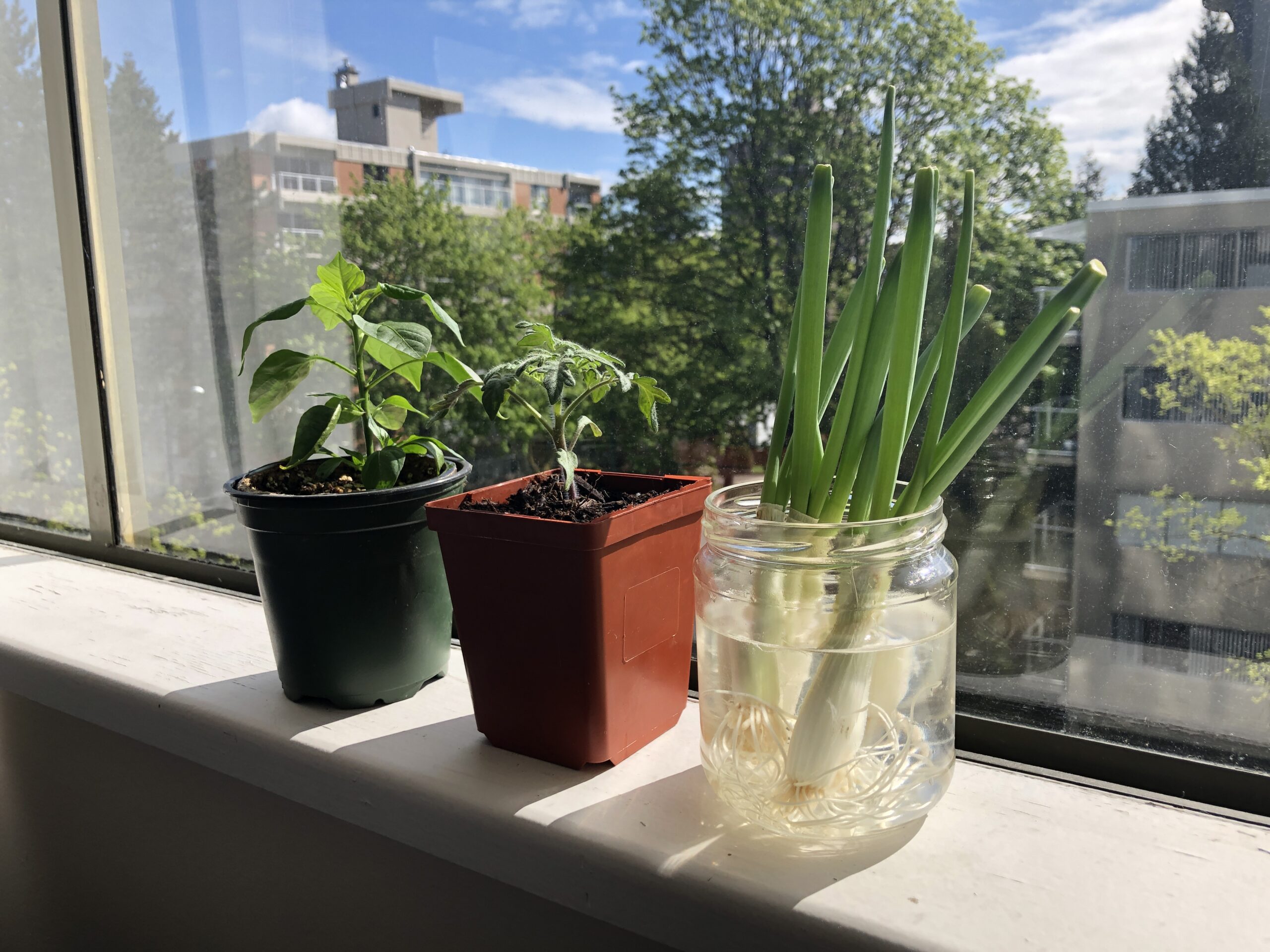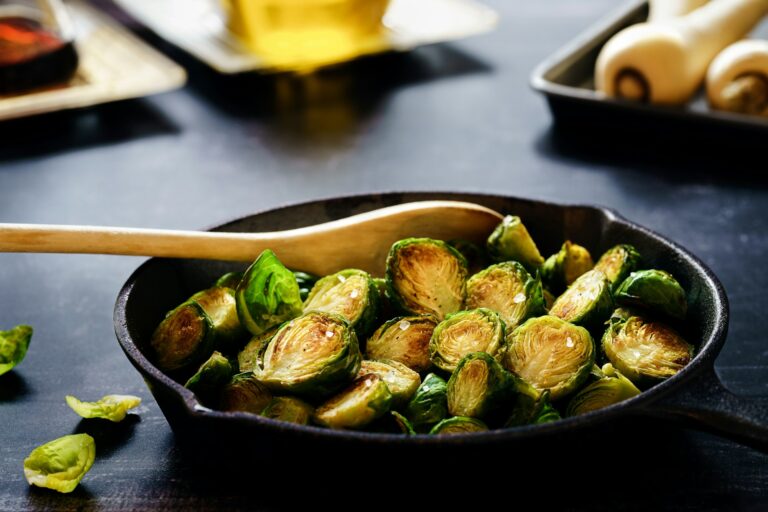Q&A: How to regrow plants from kitchen scraps (and nourish your soul)
As we watch spring blossom outside our windows and try to minimize trips to the grocery store, UBC Media Relations asked horticulturist Egan Davis for tips on how to re-grow food from kitchen scraps.

Video created by Egan Davis with the CBC Creator Network.
As we watch spring blossom outside our windows and try to minimize trips to the grocery store, UBC Media Relations asked horticulturist Egan Davis for tips on how to re-grow food from kitchen scraps, set up container gardens, and the simple joy of nurturing plants in times of uncertainty.
Davis is the principal instructor of the horticulture training program at the UBC Botanical Garden, and has spent 25 spring seasons refining his plant growing skills.
What are some easy plants to grow in small places?
There are a lot of things you can grow from the grocery store in containers on your balcony! The great thing about vegetative food plants we eat is that they are programmed to grow fast and easily – so that should remove some concern about not knowing how to do it.
Leafy greens like lettuce, arugula, spinach, kale or Swiss chard are cool weather plants that you can plant right away. Warm weather plants like tomatoes and hot peppers can be a lot of fun too – you can start them indoors now and then move them outdoors at the end of May or early June. Herbs like rosemary and thyme are also really easy to grow from cuttings.
And if you make a mistake, you get a couple of chances in a season to try again!
How do you regrow plants from kitchen scraps?
Foods like lettuce, bok choy or spring onions are easy to regrow – when you’re making dinner, just preserve the stump and ideally the shoot in the centre. Then stick the stump in a jar of water on your windowsill. It’s a good idea to change the water every few days. Once you see leaves and roots initiating, just nestle it into soil in a container. Or you can go directly into a pot, but it’s fun to watch the roots and leaves growing in water.
You can continue to harvesting leaves until it gets too hot and the plants start to flower – at that point the leaves will get bitter and the plants are done. You can try to prolong their growth by moving them to the shade when it starts to get hot.
You could also try things like heirloom tomatoes and peppers from seed – you can try anything really to see how it goes – and any food scraps you don’t use can be turned into compost under the sink.
What are your top tips for first time gardeners?
Timing is important: West Coast Seeds has a great online planting chart that tells you what to plant and when for different regions across Canada.
Water your plant thoroughly, then let the soil dry down: If you’re growing in a container, water the plant until water is coming out of the bottom and then don’t water it again until the soil dries down. The cycle of moist soil to dry soil and back is important because roots need oxygen. Also, fertilizer has salts that can accumulate in layers if you’re only watering a little bit at a time and that can burn the roots.
Container size is important: If you put a small plant in a big container, the soil will stay moist for too long and the plant might rot. Conversely, if the pot is too small for a plant, it dries out really quickly.
Get specially formulated potting soil from the garden centre: If you take earth from the soil, you might have some success, but the soil won’t be porous enough to get saturated properly when you water it.
What do you hope people can learn from growing food at home?
A lot of this stuff is fun – I’m growing some scraps on my own balcony and I’m going to eat what grows, but I think it’s a really good lesson for people to learn how much effort goes into the food we eat – how long it takes and how much space it takes to produce food in the quantities we need.
Growing food from scraps really satisfies a desire to nurture things right now. People are home, and worried about their health and the future and what’s really nice about growing plants is that you have something to take care of, and witnessing growth is so inspiring. I’ve worked in horticulture all my adult life and it doesn’t get old when a seed germinates. It makes you think positively about things happening tomorrow as you’ve got this vision of this plant you can eat. I think those things are really satisfying for the soul, and very rewarding.



